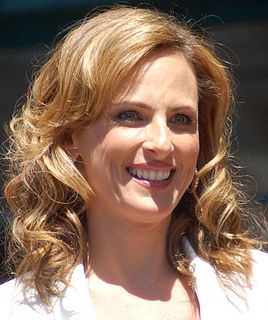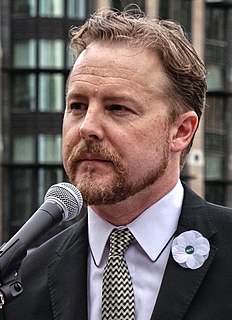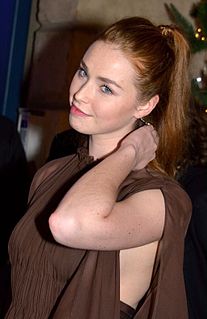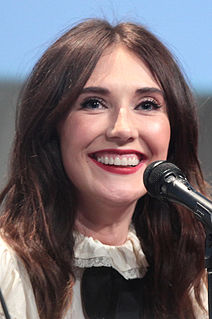A Quote by Kate DiCamillo
I find that when I write for children, I am more hopeful, less cynical. I don't use different words or a different sentence structure. I just hope more.
Related Quotes
The more I write, the more I've come to realize that books have a different place in our society than other media. Books are different from television or film because they ask you to finish the project. You have to be actively engaged to read a book. It's more like a blueprint. What it really is, is an opportunity... A book is a place where you're forced to use your imagination. I find it disappointing that you're not being asked to imagine more.
You have a lot more leeway to be contradictory playing a character than most of the scripts have in them. That's how all actors are. We have so many different sides of ourselves and we're so different, in meeting with different people. The audiences relate more to that and find that more believable.
Most people write the same sentence over and over again. The same number of words-say, 8-10, or 10-12. The same sentence structure. Try to become stretchy-if you generally write 8 words, throw a 20 word sentence in there, and a few three-word shorties. If you're generally a 20 word writer, make sure you throw in some threes, fivers and sevens, just to keep the reader from going crosseyed.
The difference when I'm writing a story versus writing a joke is that writing a joke is so much more about the structure and it's less about the conversation. To me, the thing that I love about stand-up is the intimacy between performer and audience.To get it even more conversational was something that really appealed to me and that I really enjoyed doing. My early experiments with it, with just telling a story from my life on stage, it was so satisfying to do. And seemingly for the audience as well. It's a different thing, and it's a different feeling and a different vibe.
The fact is that at different stages of your life, and under the influence of different inspirations, you write different things. The point is not necessarily to find your voice, which grinds out the same sort of thing again and again, but to find a vehicle for people who are far more important than the author: the characters.


































